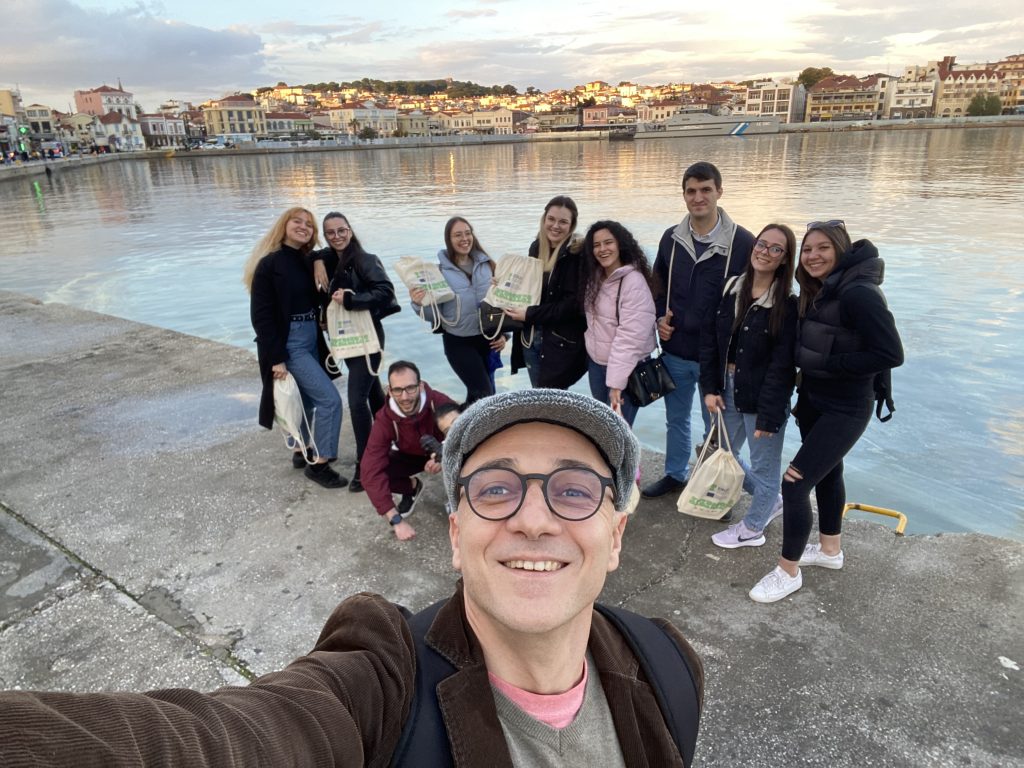A group of ten students from New Bulgarian University (NBU) traveled to the island of Lesbos for a seminar on tourism and digital technologies. They collaborated with Greek students and teachers for three days, focusing on developing tourism strategies using digital technologies and cultural attractions. The trip was filled with joy and enthusiasm, and the organizer expressed no regrets about arranging the seminar. When asked about memorable moments, two photos stood out: one captured the students preparing their presentation in a cozy studio, and the other showed the organizer taking a selfie with the students. These moments symbolized the fun and camaraderie of the student-teacher team. Lesbos, known as the birthplace of poetess Sappho, has also gained attention due to its association with migration from war-torn countries.
Despite the rainy and windy weather during the trip, the group fell in love with the island’s charm. They enjoyed Greek cuisine, visited the University of the Aegean campus, and explored the remarkable Teriad museum, which houses original artworks by renowned artists. Overall, the experience showcased that learning can be enjoyable and that bonds can form between students and teachers. The Teriad museum (with a library), which deserves a separate article due to the incredible treasures it holds within its halls. The museum is filled with original works by Henri Matisse, Pablo Picasso, Marc Chagall, Juan Miró, Teofilos, and Ioannis Tsarouhis. It is located in a suburb of Mytilini, among ordinary houses within a magical garden.
The group also visited Plomari, the birthplace of ouzo, and explored the Varvaiani museum, where they learned about the distillation process.
The workshop itself, made possible by Associate Professor Georgios Karidakis and his assistant Konstantinos Michalakis, focused on developing tourism strategies for economically underdeveloped regions. Divided into teams, Bulgarian and Greek students worked on creating rough versions of strategies, incorporating digital tools and emphasizing local history and traditions. The workshop was a part of the ERUA program, which fosters collaboration and learning among European universities. The experience of connecting with different students and professors was seen as highly valuable and reflective of European unity. The group consisted of Nia, Desi, Gabi, Chrissy, Radi M., Radi H., Boyana, Elina, Victor, and Willy.

